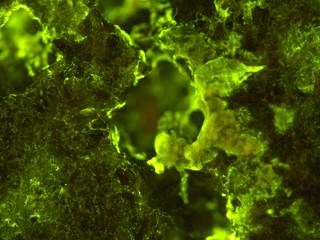The findings of the BioRock experiment indicate that bacterial supported mining can be carried out in the space. Following the success of BioRock study, the BioAsteroid experiment is currently underway now. In this study, bacteria and fungi are being grown on asteroidal material in an incubator under microgravity condition of the space station in order to study biofilm formation, bioleaching and other chemical and biological changes including the genetic transcriptional changes. Space biomining is a significant discovery that seems to have a great potential going forward.
Human settlements beyond Earth on Moon or on planets like Mars in space have long been the theme of science fiction. However, serious thoughts and research activities towards this have been in progress in the last two decades. One of the key questions before the scientific community has been on how to acquire the materials (such as oxygen, water, building materials including metals and minerals etc.) needed to establish a self-sustaining presence in space (1).
Biomining i.e., extracting metals from ores through bio-catalysis using microorganisms like bacteria and archaea is in practice for long on planet Earth. Currently, this method is used to leach copper sulfides and pretreat gold ores and also to extract metals from oxidised ores and to recover metals from wastes (2).
Can the technique of biomining be effectively used under microgravity conditions in outer space to extract materials needed for human settlements? Can microorganisms help extract metal and materials using asteroid materials or rocks available on Moon or Mars? Knowledge of microbe–mineral interactions in space is also considered important because of its potential in soil formation, formation of biocrusts in enclosed pressurised spaces, use of regolith (layer of solid material over bedrocks) and production of construction materials. Space biomining experiments were designed exactly for these reasons to understand effects of altered gravity.
To this end, European Space Agency carried out the BioRock experiment on the International Space Station (ISS) in 2019. Experiments were designed to study bioleaching of rare-earth elements from basaltic rock in three gravity conditions viz. microgravity, simulated Mars gravity and simulated Earth gravity. Three bacterial species, Sphingomonas desiccabilis, Bacillus subtilis, and Cupriavidus metallidurans were used in the study. The hypothesis tested was if ”different gravity regimens can influence the final cell concentrations achieved after a multi-week period in space’’. The results suggested no significant effect of different gravity conditions on final bacterial cell counts implying that efficacy of the bleaching process remains same under different gravity conditions. These findings of the BioRock experiment indicate that bacterial supported mining can be carried out in the space. Space biomining is a significant discovery that seems to have a great potential going forward (3,4).
Following the success of BioRock study, the BioAsteroid experiment is currently underway now. In this study, bacteria and fungi are being grown on asteroidal material in an incubator under microgravity condition of the space station in order to study biofilm formation, bioleaching and other chemical and biological changes including the genetic transcriptional changes(5).
With these stepping stones, the humanity is surely inching forward towards human settlements beyond planet Earth.
***
References:
- NASA 2007. Lunar Regolith Biomining Workshop Report. Available online at https://core.ac.uk/download/pdf/10547528.pdf
- Johnson DB., 2014. Biomining — biotechnologies for extracting and recovering metals from ores and waste materials. Current Opinion in Biotechnology. Volume 30, December 2014, Pages 24-31. DOI: https://doi.org/10.1016/j.copbio.2014.04.008
- Cockell, C.S., Santomartino, R., Finster, K. et al., 2020. Space station biomining experiment demonstrates rare earth element extraction in microgravity and Mars gravity. Published: 10 November 2020. Nature Communication 11, 5523 (2020). https://doi.org/10.1038/s41467-020-19276-w
- Santomartino R., Waajen A., et al 2020. No Effect of Microgravity and Simulated Mars Gravity on Final Bacterial Cell Concentrations on the International Space Station: Applications to Space Bioproduction. Frontiers in Microbiology., 14 October 2020. DOI: https://doi.org/10.3389/fmicb.2020.579156
- UK Space Agency 2020. Press release – Biomining study could unlock future settlements on other worlds. Published 5 December 2020. Available online at https://www.gov.uk/government/news/biomining-study-could-unlock-future-settlements-on-other-worlds
***




































